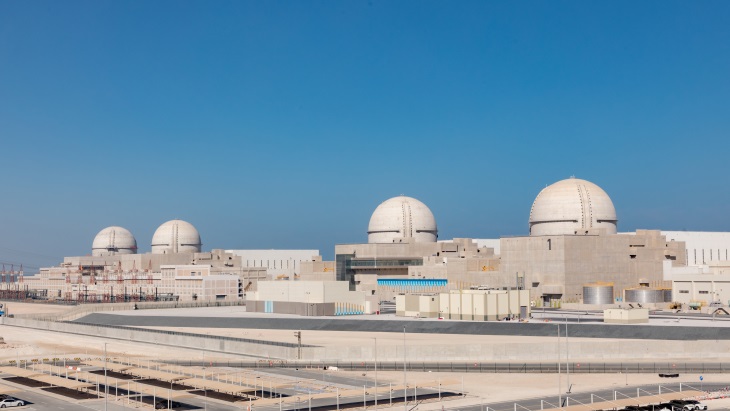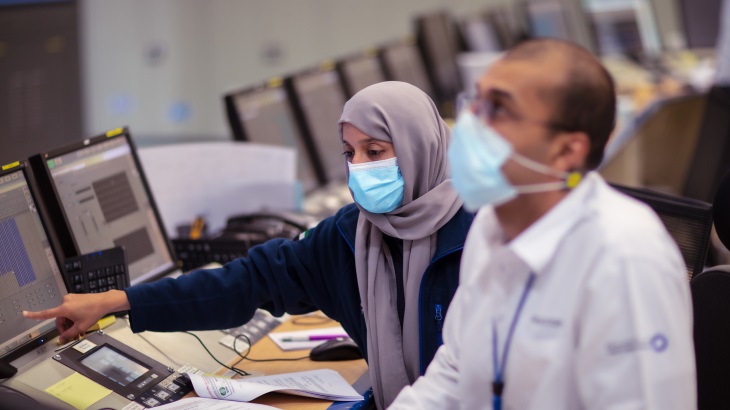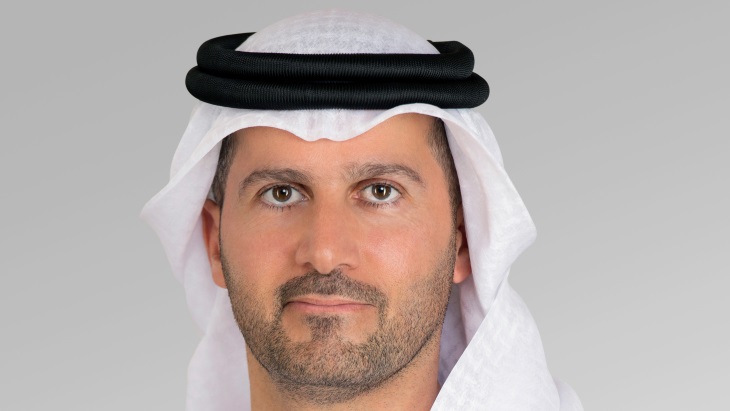"2020 is certainly a pivotal year for the UAE Peaceful Nuclear Energy Programme. The United Arab Emirates has become the first country in the Arab World to successfully develop the intellectual and physical infrastructure necessary for the use of nuclear energy to generate safe, clean and reliable baseload electricity.
The Barakah Nuclear Energy Plant, the cornerstone of the UAE programme is an important national infrastructure project, and integral to the UAE's energy strategy to diversify its portfolio of cleaner energy sources. When fully operational, this civilian nuclear energy plant will produce up to 25% of the UAE’s electricity needs, whilst preventing the release of 21 million tonnes of carbon emissions annually, equivalent to removing 3.2 million cars off the roads each year.
This month we have achieved our most historic and significant programme milestone to date - the start-up of the first of the four units of the Barakah plant, the first achievement of its kind in the UAE and the Arab World, and a landmark moment in the UAE’s transition to a clean energy future.
The achievement marks the first time that the unit 1 reactor produces heat by safely maintaining nuclear fission. This significant milestone follows the completion of fuel assembly loading in March by our joint venture operating and maintenance subsidiary Nawah Energy Company (Nawah). This important step was completed following Nawah’s receipt of an operating licence for unit 1 from the UAE’s independent nuclear regulator, the Federal Authority for Nuclear Regulation (FANR), in February.
However, more than the milestone itself, the greatest lesson learned is how the UAE achieved criticality. This milestone is the culmination of more than a decade of vision, strategic planning and dedication, combined with adherence to the highest standards of nuclear safety and quality, and constant collaboration with international organisations.
Our talented teams working at Barakah have shown incredible commitment to continue working safely and steadily, mitigating the challenges posed by the COVID-19 global pandemic. Since February, we have worked in close collaboration with local and federal authorities, as well as the international nuclear community, to implement robust COVID-19-specific safety measures, further protecting our employees and the plant, and minimising any impact of a potential outbreak on the development of Barakah. The approach we have taken has enabled us to safely maintain our schedule for the start-up of unit 1, which we are very proud of, and which is a testament to the resilience and flexibility of our teams to work within the framework that we refer to as our 'new normal'.

Looking back, three key factors have enabled us to safely deliver the Barakah plant on schedule, and to the highest standards of nuclear safety and quality.
Firstly, our nuclear energy policy ensured that we followed a clear roadmap from the very beginning.
The 2008 Policy on ‘The Evaluation and Potential Development of Peaceful Nuclear Energy’ outlined the need to develop additional sources of electricity to meet future demand projections and support the continued development of the economy.
The policy established firm commitments that have remained in place ever since. These include commitments to complete operational transparency, the highest standards of non-proliferation, safety and security. It included commitments to working with responsible nations, as well as directly with the International Atomic Energy Agency (IAEA); conforming to its standards in establishing a peaceful nuclear energy programme.
We began construction in 2012 and eight years later, Nawah has now started up the first of the four units. The clear policy and the roadmap we prepared at the start of the programme has enabled us to move from construction and reach start-up in a safe, efficient and effective manner.
Secondly, working with international partners and stakeholders has mean that the UAE Programme has reaped the benefit of decades of expertise and experience, and assimilated this into to a very efficient development programme.
As a pioneering project, ENEC has worked closely with its prime contractor and joint venture partner, the Korea Electric Power Corporation (KEPCO), to ensure that the plant meets all national regulatory requirements and international standards and best practice. The plant utilises the Korean APR1400 technology which has been developed and enhanced by KEPCO over the past 30 years, and certified by the Korean regulator, the Korea Institute of Nuclear Safety (KINS), for use in South Korea. It was approved for use in the UAE by FANR, and most recently by the US Nuclear Regulatory Commission (NRC) for use in the USA. These approvals clearly demonstrate that the reactor design implements the highest nuclear standards in terms of safety and operational performance.
While Barakah unit 1 is the first APR1400 outside of South Korea to achieve start-up, three APR1400 reactors have been in operation in South Korea for a number of years and a third, Shin Hanul unit 2, is scheduled to achieve first criticality in early 2021.
Guidance from organisations such as the IAEA and the World Association of Nuclear Operators (WANO) has been instrumental to the achievements at Barakah. Earlier this year, an international team of nuclear industry experts from the Atlanta Center of WANO conducted an extensive operational readiness assessment, which concluded that unit 1 of the plant, located in the Al Dhafra region of Abu Dhabi Emirate, was ready for start-up. The successful completion of WANO’s Pre-Start Up Review (PSUR) assessment provided international recognition that our plant, people and processes meet international start-up standards.
Thirdly, developing a generation of talented nuclear energy professionals has been critical to the success of the programme. Since the beginning of the UAE Programme, we have worked tirelessly to recruit, train and certify talented UAE nationals to ensure we have a sustainable pipeline of qualified nuclear professionals for the 60 years the Barakah plant will operate.
Today we are proud of the fact that around 60% of our employees are UAE nationals - professionals who are already becoming global leaders in their specialisations. Last year, we saw an historic achievement for the programme's human capacity development efforts: the certification of the first UAE nationals as senior reactor operators (SROs) and reactor operators (ROs), and the qualification of UAE Nationals as local plant operators, quality assurance surveyors and other roles essential for the operation of the Barakah plant. To date, 72 SROs and ROs have been certified by FANR, of which 30 are UAE nationals.

Overall, the nuclear energy sector is an engine for social, academic and economic growth. Nuclear energy in the UAE is supporting economic diversification by creating thousands of high-value jobs through the establishment of a sustainable local nuclear energy industry and supply chain. To date, 2000 local companies have been awarded contracts worth USD4.8 billion, with multiple companies being qualified to supply nuclear grade services and products, demonstrating the value of nuclear energy beyond abundant clean electricity.
As we continue on the journey to commercial operations, the Barakah plant and the wider UAE Programme unquestionably provides a new benchmark for newcomer nations who wish to harness the diverse long-term social, economic and environmental benefits of peaceful nuclear energy."
Mohamed Al Hammadi





_83147.jpg)
_87299.jpg)
_52351.jpg)





